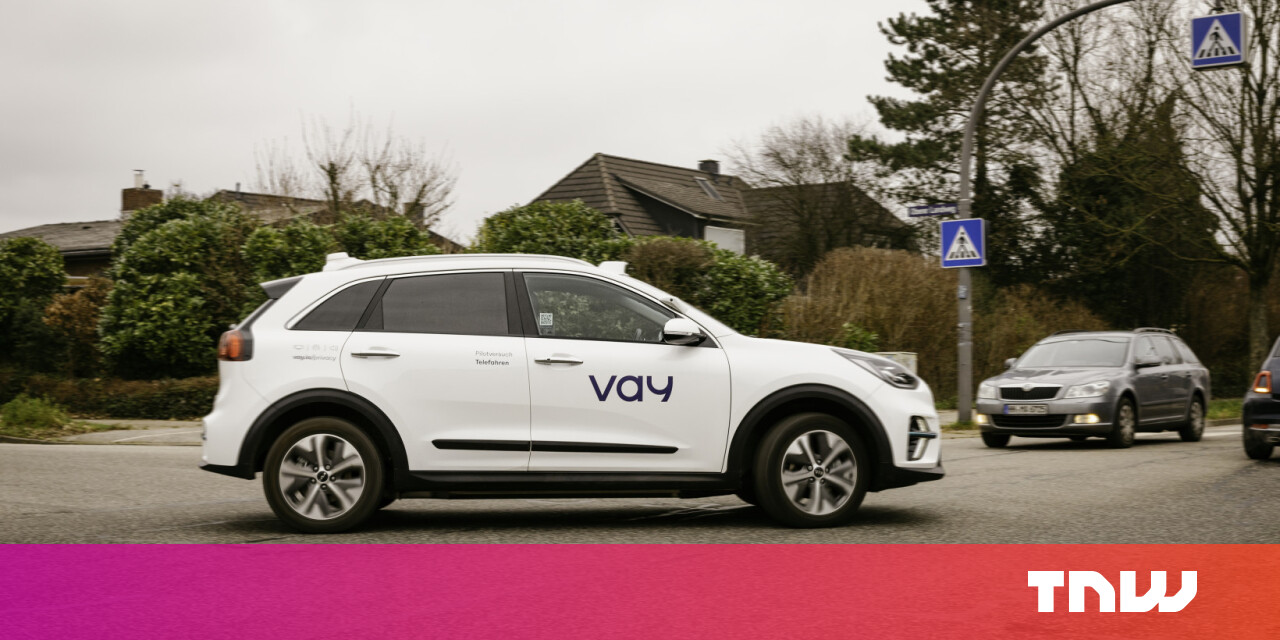
For the first time, a car with no human inside has driven on a public road in Europe.
The feat was accomplished by Vay, a German startup. The company uses an approach called “teledriving” to remote-control cars from sites located miles away.
Operators pilot the vehicles with steering wheels, petals, and monitors. They also recieve road traffic sounds via microphones and headphones.
Discover the future of tech!
Join us at TNW Conference June 15 & 16 in Amsterdam
The system resembles racing simulators for video games — only the action on the screens is happening for real.
Redundant mobile networks provide the data transmission. In the event of a network failures or emergency, the vehicle automatically come to a safe stop.

Vay trialled the tech without safety drivers after receiving an exemption permit from Harmburg. The company announced on Tuesday that it’s now completed its first test-drives on predefined routes in the city.
“As a leading teledriving company, we have been driving remotely-controlled electric cars on public roads in Berlin and Hamburg for more than three years,” Vay CEO and co-founder Thomas von der Ohe said in a statement.
“With the exemption permit received in December 2022, we were now able to successfully drive the first car without a safety driver on a public road.”




Vay was founded in Berlin in 2018. The startup has gone on to build a team of over 150 people, which combines software and product experience from Silicon Valley with automotive hardware and safety engineering from Europe.
The company eventually plans to sell their tech in two ways. The first is a door-to-door mobility service. A car will be teledriven to a user’s location, where the customer will take the wheel and drive to their destination, at which point the remote operator takes over again. The second service is teledriving a car while the user sits in the back.




Vay argues that teledriving will be safer for passengers and more convenient for drivers, while reducing inner and private vehicle ownership. The services aim to compete with existing car-sharing and ride-hailing providers.
Anjes Tjarks, Hamburg’s Senator for Transport and Mobility Transition, envisions further benefits.
“Vay creates such added value with its teledrive service: no need to search for a parking space, emission-free, digitally bookable and as a convenient service, for example for the ‘last mile’ from the bus or train station to your own front door,” he said.
Vay will also use its test data to develop self-driving features. Perhaps teledriving can give a jumpstart to the stalling autonomous vehicle sector.








